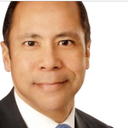When can Rhinoplasty tape be removed after surgery?
What happens if the tape is removed too soon?
What happens if the tape is removed too soon?




What’s trending? Who’s turning heads? Which TikTok myths need busting? We’ve got you. No fluff, no gatekeeping—just real talk. Get our free, unfiltered newsletter.